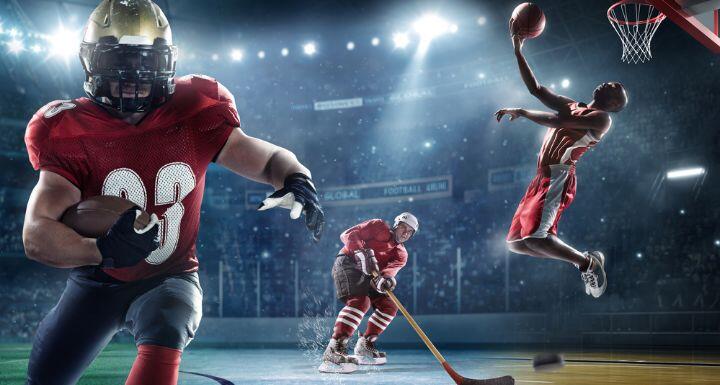The world of Name, Image, and Likeness (NIL) has exploded onto the scene and taken college athletics by storm. The impact of NIL on the college sports landscape is a topic of daily discussion throughout sports media.
But the excitement of this new landscape is coupled with questions on how businesses and others looking to get involved in NIL with student-athletes and member institutions are required to act and what those entities must do not to run afoul of the NCAA and applicable state law.
On May 9, 2022, the National Collegiate Athletic Association ("NCAA") Division I Board of Directors issued guidance to member institutions concerning NIL. The guidance, which is effective immediately, clarifies the NIL environment, most specifically as it pertains to the recruitment of student-athletes. While most directly applicable to member institutions and student-athletes, this guidance is of significant importance to businesses and boosters considering supporting member institutions and/or student-athletes through NIL. As such, those businesses should review and carefully consider this guidance and ensure compliance to avoid potential pitfalls or issues.
The May 2022 guidance follows the NCAA's initial adoption of an Interim Name, Image, and Likeness Policy, effective July 1, 2021 – which applies to currently enrolled student-athletes, their families, and the member institutions.
Interim NIL Policy Guidance
The Interim NIL Policy provided the following guidance for athletes, athlete's families, and member institutions:
- Individuals can engage in NIL activities consistent with the law of the state where the school is located. Colleges and universities may be a resource for state law questions.
- College athletes attending a school in a state without an NIL law can engage in this type of activity without violating NCAA rules related to name, image, and likeness.
- Individuals can use a professional services provider for NIL activities.
- Student-athletes should report NIL activities consistent with state law or school and conference requirements to their school.
Subject to the above guidance, NCAA Bylaws remained in effect, including prohibitions on pay-for-play and improper recruiting inducements. However, the applicability of those prohibitions/restrictions is subject to whether an institution is in a state with or without NIL law or executive actions. If an institution is in a state without NIL laws or executive actions (or if said laws/actions have not yet taken effect), eligibility for NCAA athletics will not be impacted by Bylaw 12 (Amateurism and Athletics Eligibility). If an institution is in a state with NIL laws and/or executive actions, where a student-athlete or member institution engages in NIL activity that complies with applicable state law, a student-athlete's eligibility (or member institution's full participation) is not impacted by the application of existing NCAA Bylaws – unless and until the applicable state law or executive action is invalid and/or unenforceable.
What is a "Booster"?
The Interim NIL Policy defines a booster as "an individual, independent agency, corporate entity (e.g., apparel or equipment manufacturer) or other organization who is known (or who should have been known) by a member of the institution's executive or athletics administration or an athletics department staff member to have participated in or to be a member of an agency or organization promoting the institution's intercollegiate athletics program, to have made financial contributions to the athletics department or an institution's booster organization, to assist or to have been requested (by the athletics department staff) to assist in the recruitment of prospective student-athletes, or to assist or to have assisted in providing benefits to enrolled student-athletes or their family members."
Specifically, if an individual or NIL entity (including collectives) primary purpose is to engage in NIL activities, including for recruiting purposes, such individual or NIL entity is considered a booster. It would also cover businesses and entities providing financial contributions to the athletics department or affiliated organization.
If a business (or individual) qualifies as a booster, it cannot engage in recruiting activities, including recruiting conversations, on a member institution's behalf. Such conversations include solicitation of a prospective student-athlete or said athlete's family members for the purposes of securing the athlete's enrollment at the institution. The prohibition covers calls, text messages, direct messages, and other forms of communication.
May 9, 2022 Guidance
Further clarifying the Initial NIL Policy, the NCAA added two sections of additional guidance: one for prospective student-athletes and one for current student-athletes.
For prospective student-athletes, the following guidance was provided:
- Recruiting conversations between an individual booster or booster entity and a prospective student-athlete are prohibited.
- An individual booster or booster entity cannot communicate with a prospective student-athlete, said athlete's family, or other affiliated with the prospective student-athlete for recruiting purposes.
- An individual booster or booster entity cannot guarantee or promise an NIL agreement to a prospective student-athlete, contingent upon enrollment by the prospective student-athlete at a particular institution.
- A member institution's coaches and staff are prohibited from organizing, facilitating, or arranging meetings between a booster and a prospective student-athlete.
- A member institution's coaches and staff are prohibited from communicating with a prospective student-athlete on behalf of a booster.
- NIL agreements must be based on an independent, case-by-case analysis of the value that each athlete brings to an NIL agreement. NIL agreements cannot be based on compensation or incentives for enrollment decisions, achievement, performance, or membership on the team.
For current student-athletes, the following guidance was provided:
- NIL agreements between a current student-athlete and a booster cannot be guaranteed or promised subject to the student-athlete's continued enrollment at a particular institution.
- Identical to the guidance for prospective student-athletes, NIL agreements must be based on an independent, case-by-case analysis of the value that each athlete brings to an NIL agreement. NIL agreements cannot be based on compensation or incentives for enrollment decisions, achievement, performance, or membership on the team.
Takeaways
The May 9, 2022 Guidance adds further specificity and clarity concerning both prospective student-athletes and current student-athletes, most prominently concerning recruiting and "pay-to-play." These directly implicated businesses and potential booster entities. The NIL Policy defers substantially to state law and executive orders – emphasizing compliance by member institutions with those regimes. The NIL Policy then supplements existing state law regimes to achieve a few primary goals:
- Prevent/limit coordination by member institutions (and, specifically, coaches and staff) with boosters (individuals and NIL entities – i.e., collectives) concerning NIL Agreements and recruitment of prospective student-athletes. Simply put, the member institutions cannot coordinate meetings, communications, and the like between boosters and prospective-student athletes.
- Prevent "pay-to-play" for both prospective and current student-athletes. The NCAA seeks to prohibit such arrangements that induce an athlete to either enroll at or remain at an institution, and no NIL Agreement can be premised on such an arrangement.
The burden falls on the member institutions to police boosters and to apply/report potential violations to the NCAA. Member institutions must monitor and report any improper inducements and must work with the NCAA to certify the eligibility of the institution's student-athletes. Those institutions must also ensure compliance with any applicable state laws and institutional NIL requirements/regulations – the NCAA specifically disclaims any responsibility for said institutional compliance.
For businesses, coordination with a member institutions compliance office is important – given the potential impact if a business or booster entity violates the stated guidance. Additionally, careful consideration and adherence to this guidance is advised, including involving legal counsel should questions arise concerning whether certain contributions and/or actions violate the letter (or the spirit) of this new guidance.
Overall, the NIL Policy continues to evolve, and further guidance and clarification are expected in the coming months and years. However, enforcement of these specific requirements remains unclear and how the NCAA will police any infractions is unknown. Practically, enforcement may prove difficult. Businesses should perform necessary due diligence to ensure compliance with the guidance and work with member institutions to conform to these objectives.








